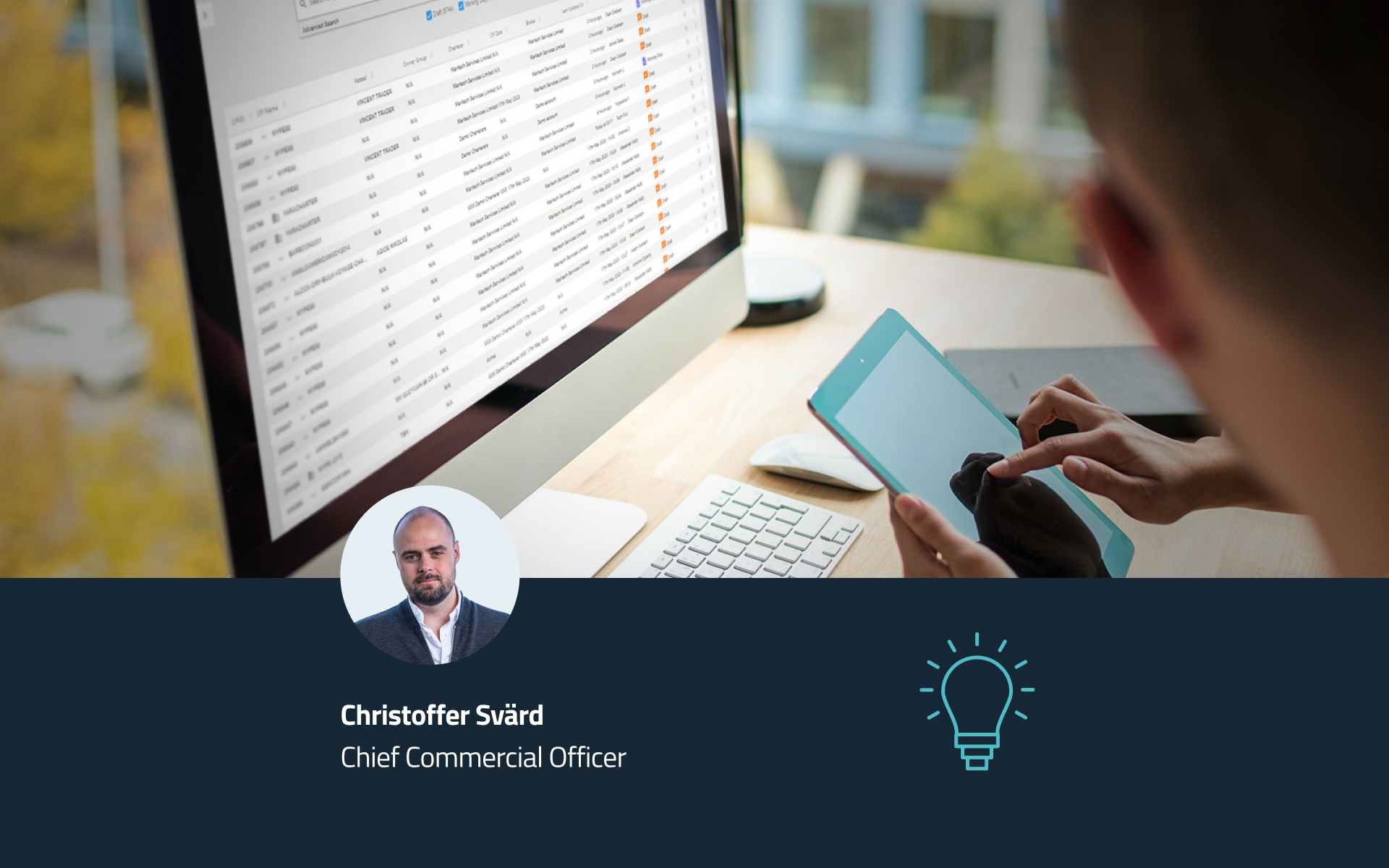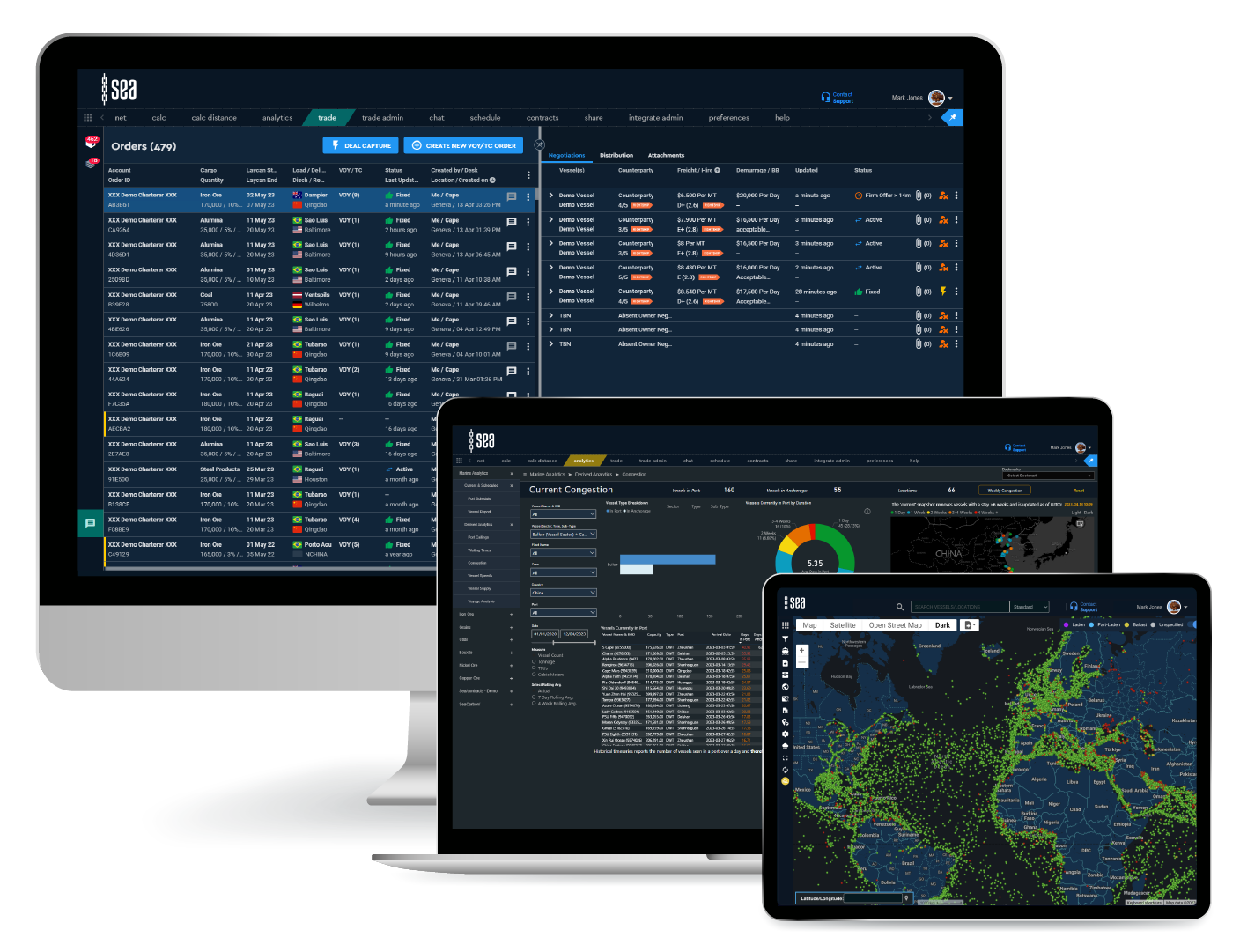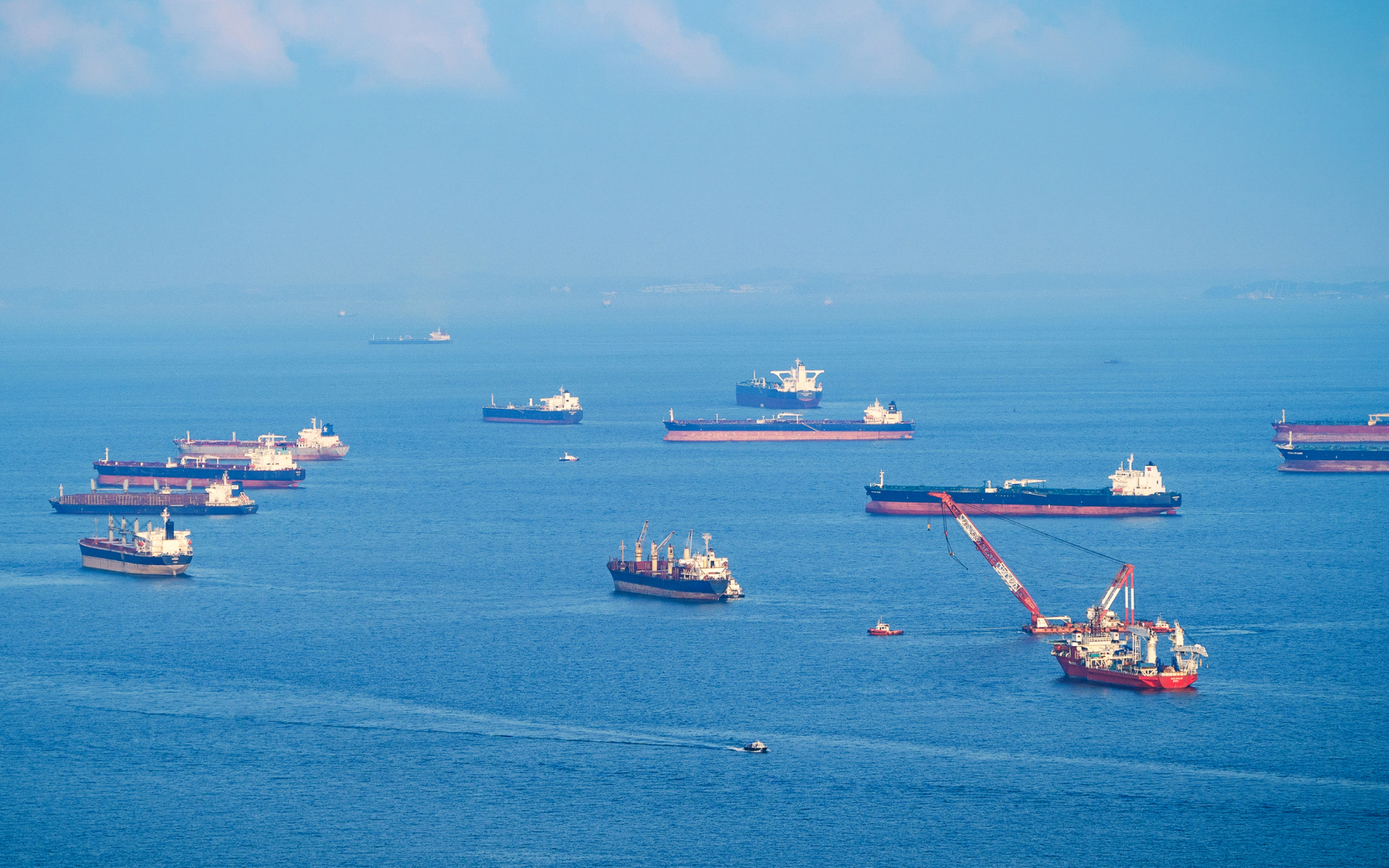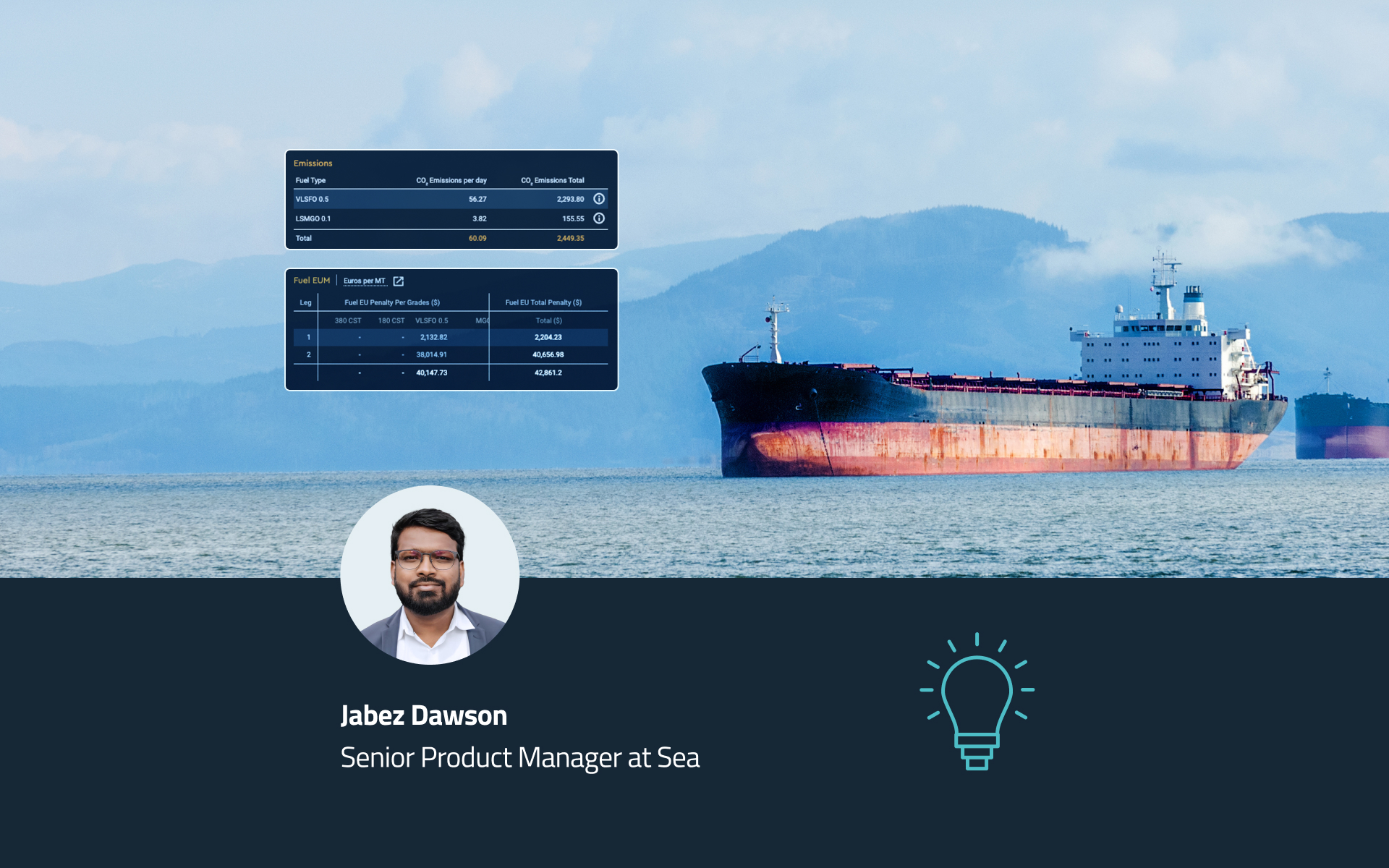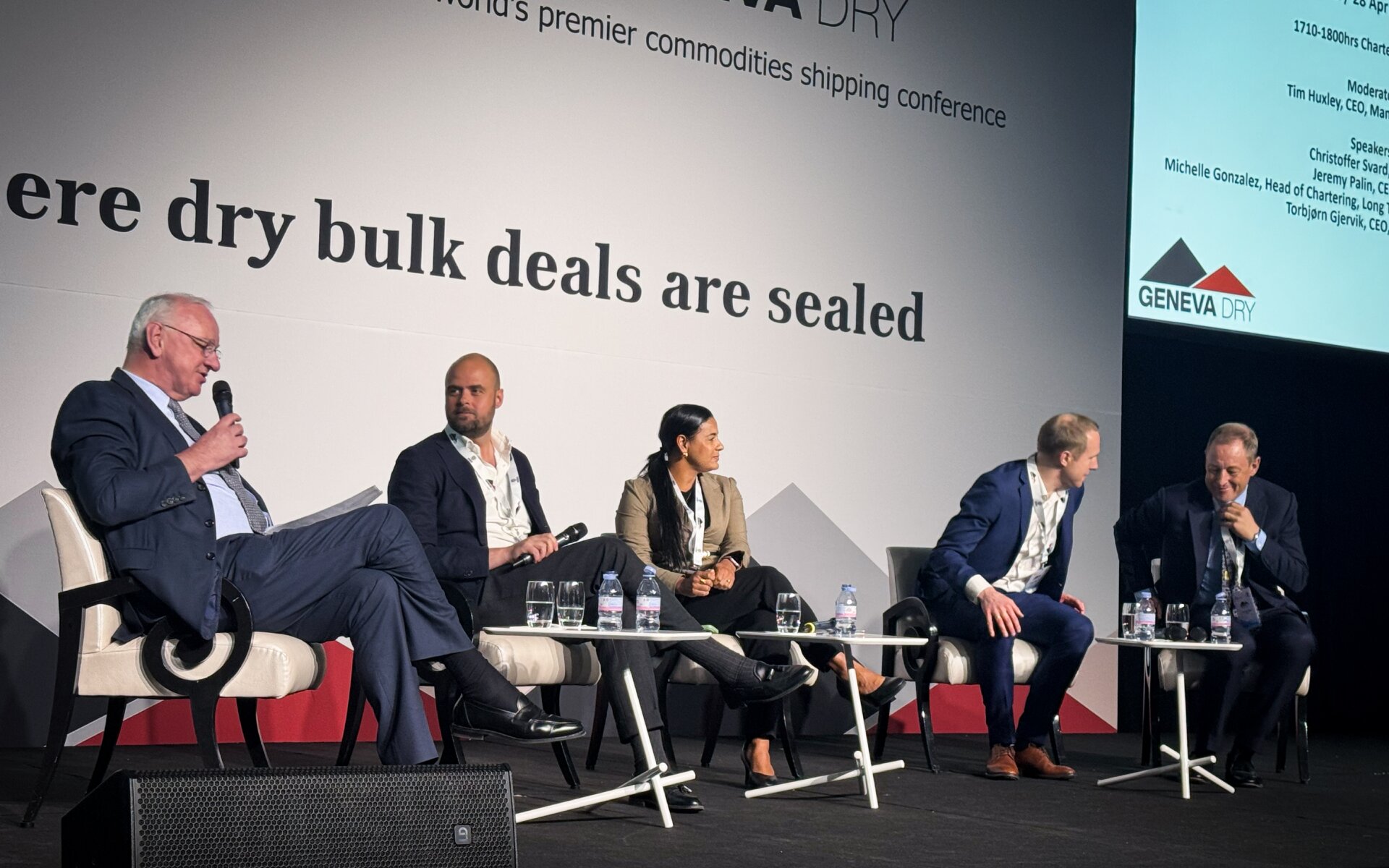It’s somewhat ironic that charterparties and recaps, originally designed to bring clarity to an agreement, are often a significant source of risk. Even worse is that the traditional contract management process is eroding value for organisations.
There are a large number of examples across freight and commodity communities of how contractual downsides of a bad deal can wipe out a quarter’s – or even a year’s – worth of profits due to poor governance and lack of insights. It’s becoming increasingly clear that the traditional fragmented and decentralised contract management process is no longer fit for purpose. Luckily, a new era is here for contract management.
Navigating murky waters
The industry faces several common pain points when it comes to contract management. In my view, these are all largely a result of a continued reliance on manual and paper-based processes across the chartering workflow. Based on conversations with our clients, a significant risk likely to cause financial loss is the lack of visibility and understanding of terms across contracts.
Unfavourable or risky clauses might be scattered across numerous contracts – either offline or across multiple platforms – going back many years, and without easy access to view these, it’s more likely that involved parties might accidentally violate the terms of their agreements. This can quickly reduce profit margins while increasing risk and reputational damage.
Most contracts are cumbersome to create. They require several rounds of revisions, input from subject matter experts, and approval from multiple stakeholders. It can take weeks before a contract is finalised. The inefficiencies are intensified by the prevalence of disconnected systems used for managing chartering workflows. As a result, it’s easy for data to become fragmented and siloed, which prevents the opportunities of interoperability.
The value of digitisation
The most optimal way of enhancing visibility is to digitise the contracting process. By bringing all the charterparties into a single digital platform where all stakeholders from both sides of the contract can collaborate, everyone can steer out of the murky waters. Historical charterparties, including terms and clauses, can be easily reused. This also puts users in a stronger position to understand total current exposure. It also allows them to proactively mitigate the risk in the future by eliminating uncontrolled actions, terms, or clauses.
Another benefit of enhanced visibility is that it boosts governance – providing a clear audit trail that can be shared with relevant internal and external stakeholders. Similarly, this streamlines compliance, as contract workflows can be integrated with key data sources across your business such as sanctions data to screen vessels, which helps users navigate the fixing process more easily and with confidence.
The efficiency gains are also considerable. Amongst our current clients, we’ve seen that a digital contract creation process can reduce the time needed to take a contract from initiation to full completion by nearly half. It can also accelerate counterpart approval to take minutes instead of days. Less time is also wasted on legal disputes and investigating paper trails, allowing organisations to focus on more important value-generating activities.
From financial loss to value-add
As part of our ambition to create the intelligent marketplace for fixing freight, at Sea we are continuously developing our contract management solution to address the pain points of our customers, for them to unlock the value hidden in contracts.
We know that digitisation of contract management can transform how charterparties and recaps are created and managed. Instead of being a source of risk and inefficiency, contract management should be a source of growing value to charterers, brokers and owners.
But we don’t have to stop there. The benefits of a digital contract process can be multiplied if combined with an industry-standard platform for the eco-system of global maritime trade can rally around. A single platform with integrated planning, trading functionalities, connected and integrated with your application landscape and key data sources can be transformative for the industry. At last, we would be able to reap the financial and environmental benefits of an intelligent marketplace which powers better decisions for sustainable shipping.
Share this article
Don’t miss the latest news and insights - subscribe to our newsletter
For press enquiries, please email news@sea.live

